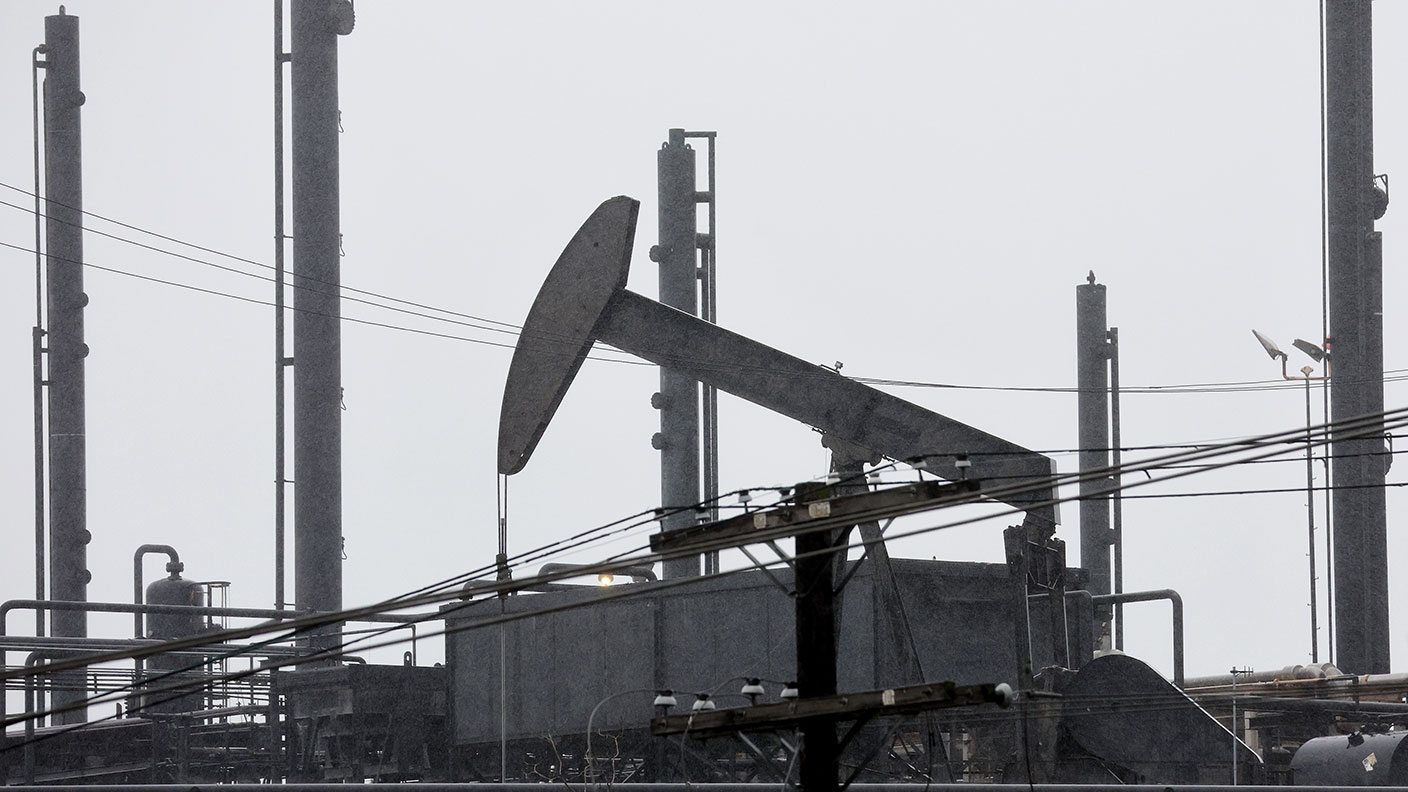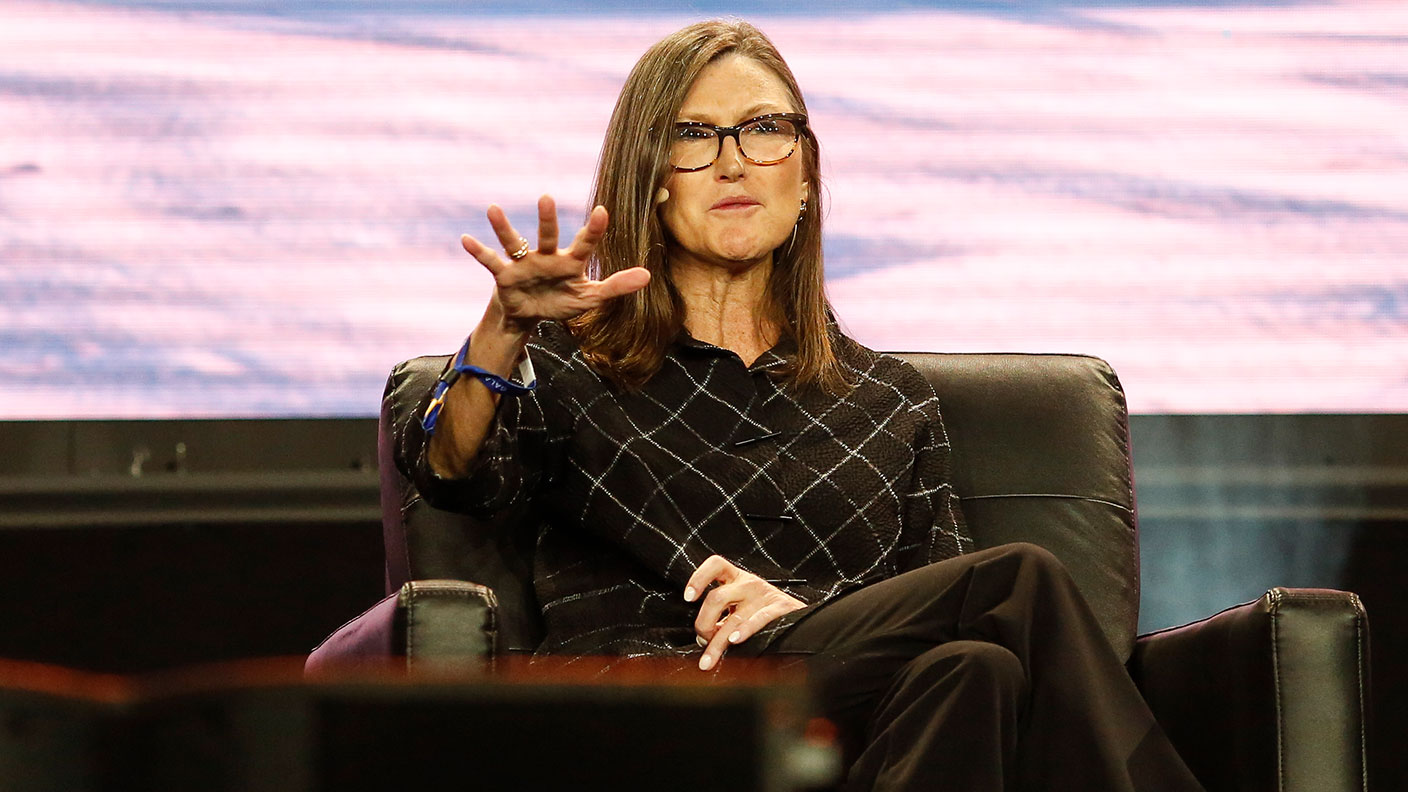How to steel yourself to buy at new all-time stockmarket highs
The US stockmarket has hit a new all-time high. Instinct may be telling you not to buy. But you should resist that instinct, says Dominic Frisby. New highs mean a bull market, and that’s a time to buy.

Get the latest financial news, insights and expert analysis from our award-winning MoneyWeek team, to help you understand what really matters when it comes to your finances.
You are now subscribed
Your newsletter sign-up was successful
Want to add more newsletters?

How hard is to buy something when it is at all-time highs?
Our every instinct tells us not to do it.
You're paying too much. It's going to crash. You'll get your fingers burnt.
Try 6 free issues of MoneyWeek today
Get unparalleled financial insight, analysis and expert opinion you can profit from.

Sign up to Money Morning
Don't miss the latest investment and personal finances news, market analysis, plus money-saving tips with our free twice-daily newsletter
Don't miss the latest investment and personal finances news, market analysis, plus money-saving tips with our free twice-daily newsletter
It's so obvious.
Don't dive in. Wait for a pullback!
But such instincts are misplaced.
Don't trust your gut
In fact, such instincts are our worst enemy. They are part of the "wall of worry" that you have to get over if you're to fully enjoy and benefit from a bull market.
The secret of investing is simple: you need to find a bull market and be long. Everyone is a genius in a bull market.
Of course, there's the fear that this bull market isn't real. It's a bubble. But you know my definition of a bubble a bubble is a bull market in which you don't have a position.
You keep reading the stories about why it's going to crash. But the bears always make the headlines;bad news sells better than good news. We're hardwired to respond to bearish stories it's part of the human instinct to protect against risk.
Meanwhile, the market carries on going up and you're on the sidelines. The further the market goes up, the louder the cries of "bubble!" get. Then eventually the market does go down and the bears are all hailed as geniuses.
It's all noise. You want to be long in a bull market and you want to be out in a bear market or you want to be short.
And do you know what? Things only break out to new highs in a bull market; they don't break out to new highs in a bear market. So if something is breaking out to new highs, then that, by definition, means it's a bull market. In a bull market, new high follows new high.
And yet it's so damn hard to buy new highs!
In a bear market things break down to new lows. It looks cheap. You take the contrarian trade. "Look at the value I'm getting here!", you think. But do you know what comes next? New lows. In a bear market, new low follows new low. You want to be short.
A long and painful story of ever-higher new highs
Back in 2013, the S&P 500 broke out to all-time highs. All that pain from the financial crisis still lingered. Buying the new high seemed like insanity. We were going to get another 2008 any day that was the general feeling.
But do you know what followed that all-time high? Another all-time high. And another. And another. Day in, day out. Week in, week out. Three years of all-time highs.
In 2013, the S&P 500 was below 1,600. Today it's over 3,000. Today, 1,600 feels very cheap. It didn't then. But I bet you wish you bought it.
In 2015, we got a wobble. But then what happened in late 2016? Another all-time high. Then, we were around 2,200. It feels very cheap today; it sure didn't then. US stocks were a bubble. Everyone could see that, surely?
What came next? All-time highs. Nearly three years of them, before a 12-month period of wobbling and volatility.
So here were are in late 2019, and what has just occurred in the US stockmarket? Yup. The S&P 500 has just broken out to new highs. There was some round-number-itis at 3,000 perhaps six months' worth but we have just broken above. We are within touching distance of 3,050.
The Nasdaq 100 and the Russell 3000 have both also closed at new all-time highs.
New all-time highs are not characteristics of a downtrend. They're characteristic of an uptrend, of a bull market. And in a bull market you want to be long.
I can find a million reasons why the US stockmarket should go down an eccentric president, trade wars, excess leverage, out-of-control money supply, changing demographics.
Whatever. The market is going up. That's all you need to know.
Who knows? In three years' time, 3,050 on the S&P 500 might look as cheap as 2,200 does today. We might have round-number-itis at 4,000.
Or, in three years' time, the S&P 500 might be back at 2,200. I doubt it, but I don't know.
But I do know this: all-time highs lead to more all-time highs. Buying new highs is a better strategy than buying new lows.
For all its many flaws the US stockmarket is in a bull market. And in a bull market you want to be long.
There will come a day when the all-time high is the final all-time high. And that's the all-time high we all live in fear of buying.
But the nature of bull markets is that you get lots of all-time highs before the last one.
Is this week's all-time high the final hurrah? Or the first of many?
Dominic Frisby's new book Daylight Robbery How Tax Shaped The Past And Will Change The Future is available at Amazon and all good bookshops with the audiobook, read by Dominic, on Audible and elsewhere. If you want a signed copy and what could make a nicer Christmas pressie? you can order one here.
Get the latest financial news, insights and expert analysis from our award-winning MoneyWeek team, to help you understand what really matters when it comes to your finances.

-
 Financial education: how to teach children about money
Financial education: how to teach children about moneyFinancial education was added to the national curriculum more than a decade ago, but it doesn’t seem to have done much good. It’s time to take back control
-
 Investing in Taiwan: profit from the rise of Asia’s Silicon Valley
Investing in Taiwan: profit from the rise of Asia’s Silicon ValleyTaiwan has become a technology manufacturing powerhouse. Smart investors should buy in now, says Matthew Partridge
-
 Are UK house prices set to fall? It’s not so simple
Are UK house prices set to fall? It’s not so simpleAnalysis Figures suggest UK house prices are starting to slide, but we shouldn’t take these numbers at face value, explains Rupert Hargreaves.
-
 Tesco looks well-placed to ride out the cost of living crisis – investors take note
Tesco looks well-placed to ride out the cost of living crisis – investors take noteAnalysis Surging inflation is bad news for retailers. But supermarket giant Tesco looks better placed to cope than most, says Rupert Hargreaves.
-
 It may not look like it, but the UK housing market is cooling off
It may not look like it, but the UK housing market is cooling offAnalysis Recent house price statistics show UK house prices rising. But John Stepek explains why the market is in fact slowing down and what this means for you.
-
 Think the oil price is high now? You ain’t seen nothing yet
Think the oil price is high now? You ain’t seen nothing yetAnalysis The oil price has been on a tear in recent months. Dominic Frisby explains why oil in fact is still very cheap relative to other assets.
-
 What can markets tell us about the economy and geopolitics?
What can markets tell us about the economy and geopolitics?Sponsored Markets have remained resilient despite Russia's war with Ukraine. Max King rounds up how reliable the stockmarket is in predicting economic outlooks.
-
 The tech bubble has burst – but I still want a Peloton
The tech bubble has burst – but I still want a PelotonAnalysis Peloton was one of the big winners from the Covid tech boom. But it's fallen over 90% as the tech stock bubble bursts and and everything else falls in tandem. Here, Dominic Frisby explains where to hide as markets crash.
-
 The market is adjusting to a new “short dreams, long reality” world
The market is adjusting to a new “short dreams, long reality” worldAnalysis As interest rates rise, things are starting to change, says John Stepek. Reality is biting back. Gone are the fanciful ideas built on hope – a business now needs a solid foundation.
-
 Are UK house prices heading for a fall?
Are UK house prices heading for a fall?Analysis UK house-price growth is slowing as interest rates rise. But interest rates aren’t all that matters for house prices, says John Stepek.